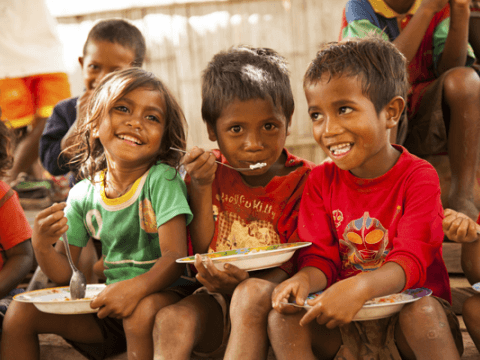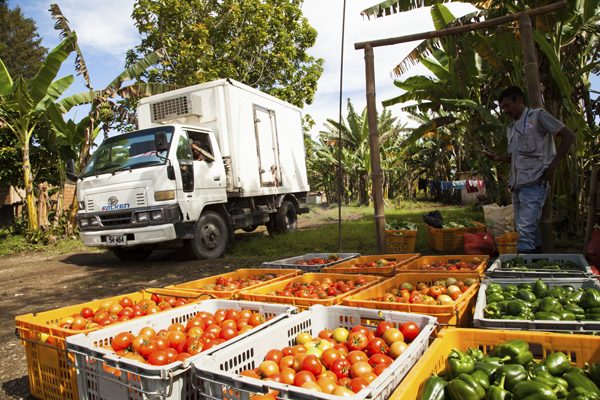From farm to market: New business helping farmers feed their families

Malnutrition is a big problem in Timor-Leste - but it looks different to what you might think. In the remote villages of the Aileu district, families often have very little to eat during the dry season.
In the months between harvests children and their parents eat fewer, smaller meals. Even if the food sometimes makes the children full, the lack of diversity means they don't get all the different nutrients they need.
While children in Timor-Leste may not be starving, the lack of good food leads to stunting. These children can never reach their full potential because of damage to small bodies and brains in just the first few years of their lives.
Families here rely on farming not just for food but also for income. Because this village is small and far from the major cities, farmers don't have many good options for trading their produce. They can sell it in the local market, or make the journey into Timor-Leste's capital, Dili. The long distances over rough roads means the produce is often in poor condition once they arrive, so it's sold for very little.
That's where World Vision comes in. Local staff are providing training to improve farming practices, making a difference to the quality and quantity of produce. Families are learning to use greenhouses and grow diverse crops that are not only nutritious, but will attract a good price at market.
World Vision also helped to make an arrangement with Kmanek supermarkets in Dili to send refrigerated trucks to the village to pick up the produce. The farmers get a much better prices their produce arrives at the market fresh. The supermarkets even provide seeds to the farmers, so they can keep up with demand.
It's a win for the farmers and the supermarkets, says Rafael Cardos, Kmanek’s warehouse chief.
"We used to import vegetables from other countries, so I'm very happy that we buy from our country how. The quality of the product is very great, and it is better that we can provide income for them," he says.
Thanks to their success so far, the farmers are hoping to expand their business by supplying produce to hospitals, army bases and other institutions with demand for fresh fruit and vegetables. It's all part of a plan to make their business sustainable in the long term.
But the benefits have extended beyond the balance sheet. Families have learned about proper nutrition for children and extra income means they can afford a wider range of foods. Parents can now also pay for their children to go to school, and have even started a savings group, which will help them invest more into their farming and their families.
The next step is to formalise those groups into cooperatives for producers and consumers so the farmers can actually invest their income to increase their capital and business, leaving them independent and no longer relying on World Vision.
The project has been an inspiring example of success for Marsaulina, World Vision’s Operations Manager in Timor-Leste.
"It's they themselves who think through, who change their own lives, we just help them by standing side-by-side with them. This is what gives me hope," she says.
The project was funded out of World Vision Australia’s 40 Hour Famine.


